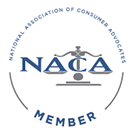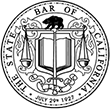“I will highly recommend Mr. Boris Davidovskiy. He had provided excellent service in Real estate and banking issues. Always easy to reach; quick response to all my emails and calls; his professional skill beyond expectations.”
Washington Consumer Banking Lawyer
Consumer Banking and Payments

Credit card companies and banks can use a variety of tactics to take advantage of their customers, including:
- Hidden fees – undisclosed or concealed fees for maintaining accounts, balance transfers, cash advances, and other financial transactions
- APR misrepresentation – Misrepresenting the credit card’s annual percentage rate (APR) or the APR to be applied to balances transferred from other accounts
- Unauthorized charges – charging credit card customers for “add-on” products or services, such as payment protection plans, without customer authorization
- Late fees – deliberately setting payment due dates on non-business days, causing the payment to be processed on a later day in order to collect late fees and excess interest
- Double charging – charging customers twice for the sale transaction
- Failure to post timely payments to account – Failing to post payments when received on time, resulting in late fees and excess interest for the customer
- Slamming – transferring balances without the customer’s authorization
- Bait-and-switch schemes – where a seller advertises a product with the intention of tricking customers into purchase a more expensive product or on more favorable terms to the seller.
If you have suffered losses as a result of consumer banking violations, contact the Law Office of Boris Davidovskiy P.C. today to evaluate your claim and take further action.








